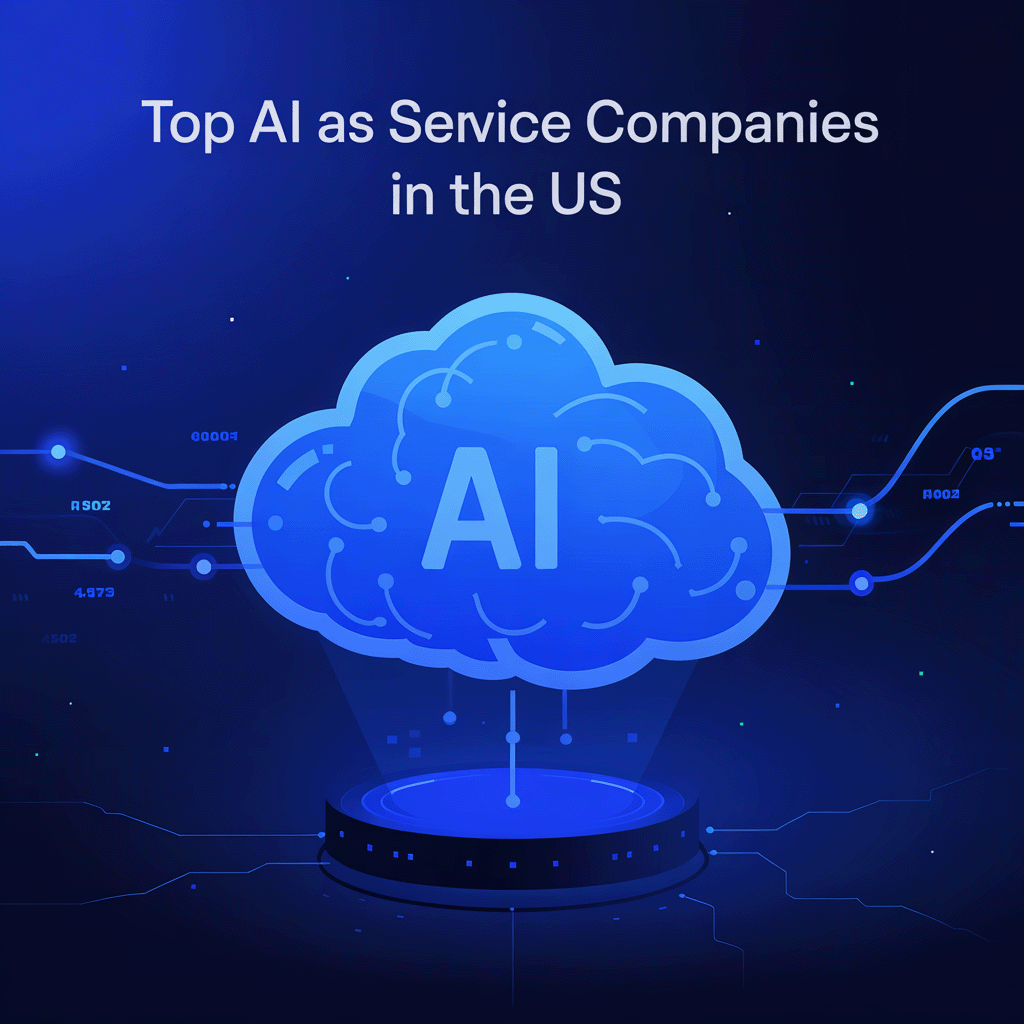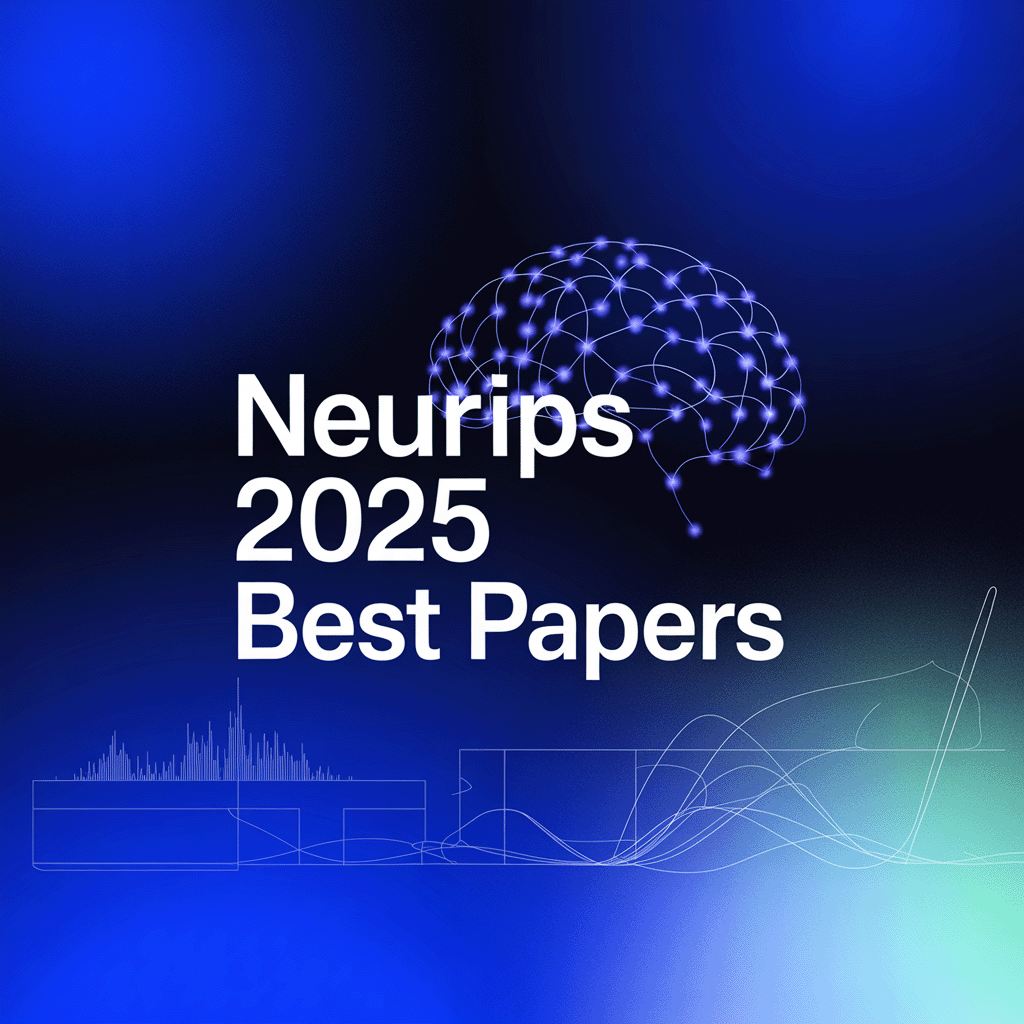The retail industry, a rapidly expanding multi-billion dollar global sector, stands on the brink of significant innovation. Despite this potential, many retailers remain unaware of the advantages that artificial intelligence (AI) can bring to their businesses and are hesitant to integrate this technology into their operations.
As of 2022, the AI market in retail was valued at $8.41 billion and is projected to soar to $45.74 billion by 2032. AI is reshaping the retail landscape by enhancing and automating operations, offering retailers substantial opportunities to refine their business processes. However, the road to adopting AI is fraught with challenges.
The question remains: will retailers overcome these obstacles to emerge as more technologically adept and competitive entities? This article delves into the operational enhancements businesses can expect from integrating AI technologies to their operations.
How Is AI Used in Retail
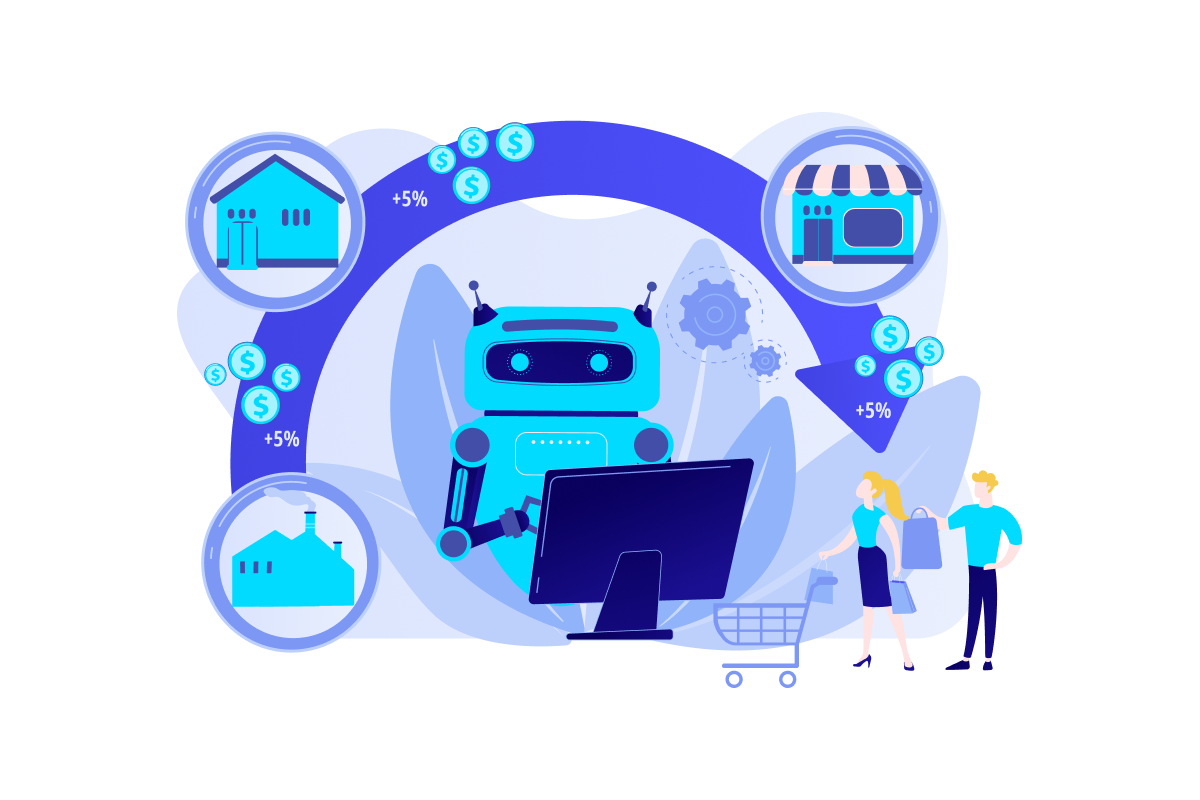
New opportunities are becoming available by using AI in Retail. Based on big data analysis, machines are becoming smarter and more user-friendly. In fact, AI-powered retail store automation will soon spread throughout the retail industry. Although this area is just at the stage of development, retail stores are increasingly moving from basic touch computers to smart customer assistance systems. Talking robots and interactive displays are already appearing in modern stores, which can simplify interaction with customers. Look in more detail at these AI in retail examples.
Inventory Management
This option will be especially beneficial for larger stores that deliver to a large number of customers every day or work with online orders. It is often difficult for merchants to manually track inventory and ensure smooth, timely delivery of products according to customer needs. However, all processes can become even simpler thanks to artificial intelligence in the retail store. You can enrich the retail business with custom ML solutions with LITSLINK.
Modern and easy-to-manage retail applications based on artificial intelligence are the best assistants. They can identify supply gaps, evaluate and track inventory, and forecast required inventory based on factors such as customer preferences, previous sales data, seasonality, and more. Such competent management eliminates the risk of overstocking.
Dynamic Pricing
In retail, it can take dozens of people to oversee everything. One of the most difficult elements is constantly monitoring competitors’ prices and calculating the average market price. Large international online stores, such as Amazon, have special applications that allow them to react to the prices of their competitors directly in real-time.
Unfortunately, before the advent of AI applications in retail, owners of small private stores could not afford such tools. Opportunities for small, medium, and large businesses are expanding thanks to the introduction of artificial intelligence in retail. Competition is growing, and even small retail stores are able to optimize the process in such a way that they compete with hypermarkets. Shopping apps can automatically update product prices with adjustments based on external data such as weather, local events, and competitor marketing campaigns.
Customer Service
Personalized assistants sometimes help to cope with the flow of clients. Now, when you place an order through a robot or communicate with a bot, it is thanks to AI in the retail industry. It is an opportunity to provide customers with a convenient way to select products. For example, if a buyer goes to the website of a huge marketplace, the built-in assistant immediately offers to clarify the request. For example, if you need to indicate the brand, model, screen size, price range, etc. This way, the buyer’s preferences will be determined to see only suitable products without unnecessary offers. Partnering with retail marketing agencies that specialize in AR integration can help businesses unlock the full potential of this technology and stay ahead of the competition in today’s digital marketplace.
In the future, this will also work for the buyer. Typically, the buyer receives personalized recommendations based on their past purchases. And if they hadn’t bought anything before, they were probably looking at something, flipping through the pages of products that interested them. AI in the retail market can take all of this into account and generate personalized landing pages, special offers, shopping cart contents, and other options simultaneously. Even advertising for the buyer will be customized as precisely as possible to their tastes and needs. This is only a small part of the possibilities of artificial intelligence in the retail industry.
How AI is Changing the Retail Industry: Benefits
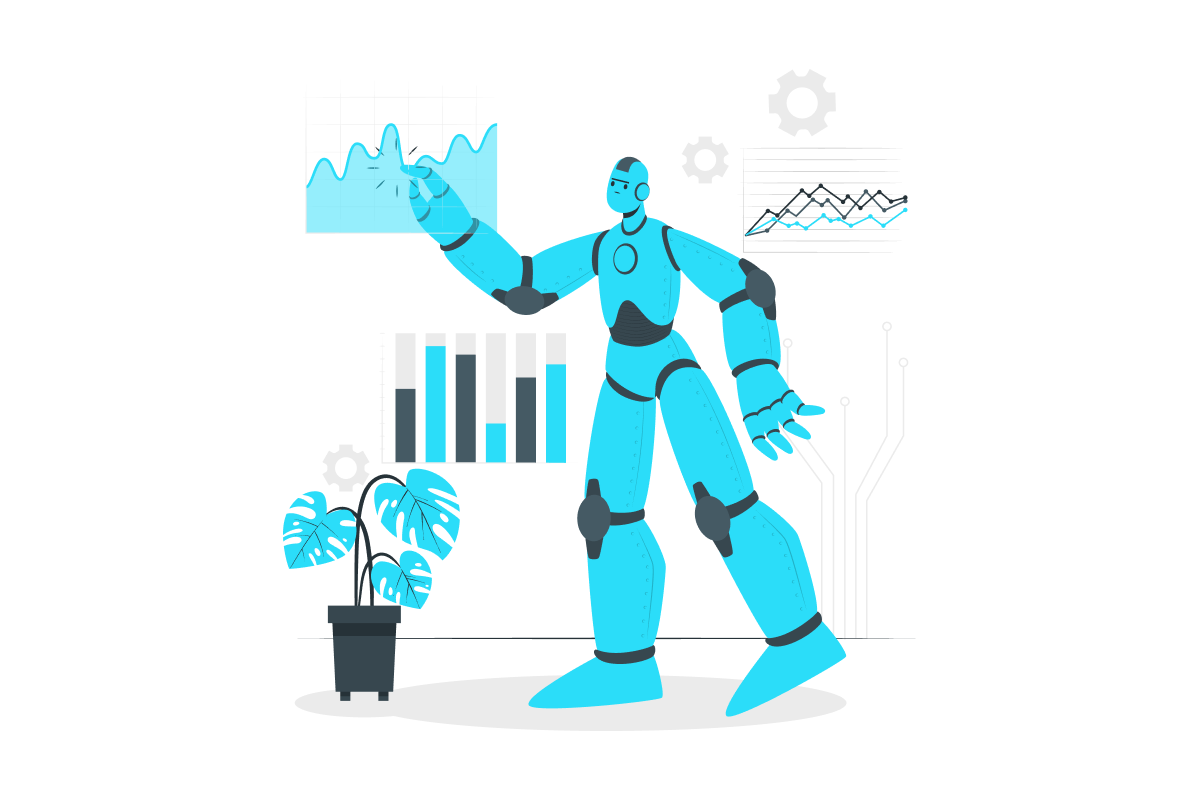
These are a few of the main advantages business owners will be able to notice almost immediately after the introduction of AI in retail stores. No matter the size of your enterprise, if you are considering AI options for your enterprise, you will definitely see the result.
Artificial intelligence in the retail business is currently at the most active stage of its development. This growth is also expected to skyrocket in the next years. Thus, implementing such a tool will give your business a competitive advantage, and you will move smoothly with the times. Let’s consider the main benefits of artificial intelligence in the retail industry.
Get More Clients
Artificial Intelligence in the retail market can help businesses with hassle-free customer support services. AI can do it all, whether it’s automated customer verification or customer sentiment tracking. The AI-driven solution also offers customers personalized offers and an immersive shopping experience. Therefore, it helps in retaining customers as well as attracting new ones.
Advanced Supply Chain Management
One of the most notable benefits of AI in the retail industry is its ability to manage workflow and help people with everyday tasks effectively. Therefore, it can help improve workforce productivity. AI can also help with supply chain management, logistics, and finding suitable delivery routes. AI in grocery retail can be used to pick and pack orders, and human resources can perform other tasks.
Forecast Market Demand
Artificial intelligence includes several innovative technologies, such as machine learning. This tool understands customer behavior and market needs. It can also predict future behavior. In addition, the application of artificial intelligence in the retail industry can help you get more detailed information and statistics about the online store. If you have a physical store, AI can also help you identify areas of your store that attract more customers, enabling you to make co
Low Costs
Of course, the application of artificial intelligence in the retail sector can help you significantly reduce costs. AI helps you target the right customers so that you can save money that is otherwise needed for promotions and advertising. In addition, the use of AI in retail allows you to make informed decisions. Automating and streamlining day-to-day routine tasks also helps reduce labor costs.
5 Challenges Retailers Face When Implementing AI

AI will only continue to grow and become more ubiquitous across all industries, and retail is no exception. Today, using AI is not as easy as it may first seem. Retailers may come across various barriers to AI adoption. Below, you will find the main difficulties and options for solving them.
Movement of Workers
Since the creation and adoption of AI in retail, people have faced many concerns about whether it will lead to mass layoffs of workers. In larger supermarkets and grocery stores, you often see self-checkouts or robotic cleaners that help improve the customer experience.
Retailers may fear AI will lead to employee layoffs if it continues to develop in its capabilities, which prevents them from implementing AI in the retail sector. However, it has become clear that AI—at its current stage—is likely to complement human work. It has not yet reached an advanced level that can eliminate the need for humans.
Fear of Change and Unpreparedness
The retail industry isn’t the one lagging when it comes to AI adoption. Many other industries have also been slow to adopt it. And there is a very obvious reason why – a fear of change. Integrating new technologies is something that every company should be ready for, but this is not the case. Fear of change is enough to prevent retailers from adopting and implementing AI-based solutions.
Data Security is Difficult to Guarantee
Artificial intelligence systems require large amounts of data. Retail information is generated across multiple platforms and from multiple sources, making it difficult to clean, store, and analyze for insights.
The lack of a dedicated IT team or employees with deep knowledge of AI can be a major barrier to adopting the technology. Obviously, no retailer wants to invest resources in AI only for it not to perform effectively.
Additionally, retailers must focus more intently on data security, which is especially concerning with today’s increasingly threatening cybersecurity environment.
Not a Great Return on Investment
Implementing machine learning and AI in retail systems may greatly affect the budget, especially for small and medium-sized businesses (SMBs). That’s why many retailers abandon any ideas to implement these initiatives or wait for the costs to drop to catch a deal.
If a company doesn’t see a significant return on investment (ROI), the AI solutions in retail will be just a waste of effort. Any business, regardless of sector, must consider the potential benefits of new technology before implementing it. Retailers in this type of business can take advantage of AI and start by implementing one or two new solutions.
Lack of Necessary Skills on the Part of the Employee
The final hurdle retailers have to overcome when using AI is the lack of skills among their employees. AI is still in the process of development. That’s why it is common for many workers to know nothing about it. They don’t understand its potential, how it functions, how to support AI solutions, and why they are in demand.
Retailers may be unable to succeed with AI solutions if they lack the necessary employees familiar with the inner workings of AI and its goals. Companies can successfully bridge the gap by training employees to understand and use AI or hiring highly skilled employees.
The Future of AI in Retail
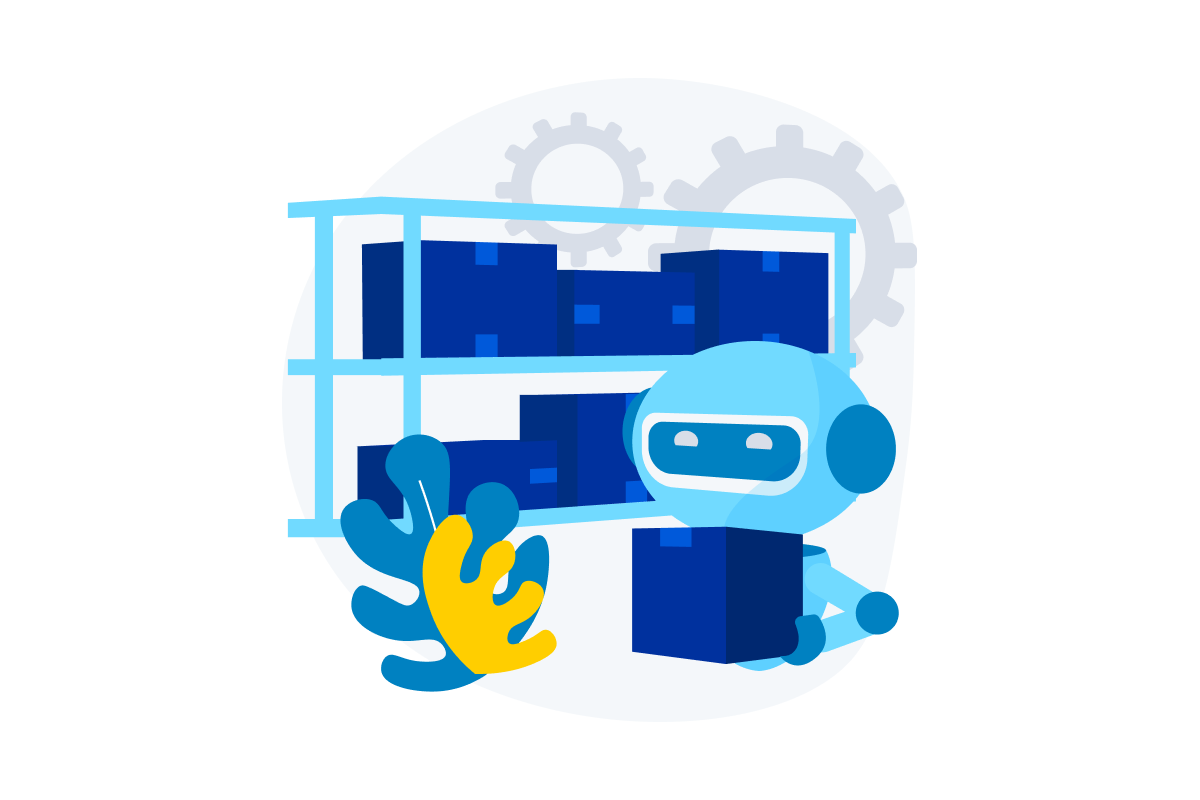
What about the future of AI in retail? Based on feedback and experts’ opinions, AI use will continue to increase across various industries, and retail is no exception. Adopting anything new comes with challenges, but many of them will positively impact the companies that embrace them.
So, what will the retail industry get from AI? An enhanced customer experience, better efficiency, and increased sales. As artificial intelligence continues to advance, retail and other industries will continue to benefit from its capabilities.
The Future of AI in Retail
What about the future of AI in retail? Based on feedback and experts’ opinions, AI use will continue to increase across various industries, and retail is no exception. Adopting anything new comes with challenges, but many of them will positively impact the companies that embrace them.
So, what will the retail industry get from AI? An enhanced customer experience, better efficiency, and increased sales. As artificial intelligence continues to advance, retail and other industries will continue to benefit from its capabilities.
Conclusion: Role of AI in the Retail Industry
Artificial intelligence is completely changing the work of retailers. Moreover, it is capable of providing immersive experiences for customers. Artificial intelligence opens up the possibility of creating an efficient and productive retail store with a pleasant shopping experience. It also allows retailers to stay ahead of their competitors.
So, now is the right time to start your artificial intelligence project for retail business as it will definitely grow in the future. With the right help and AI tools, you are certainly on your way to transforming your entire industry.


